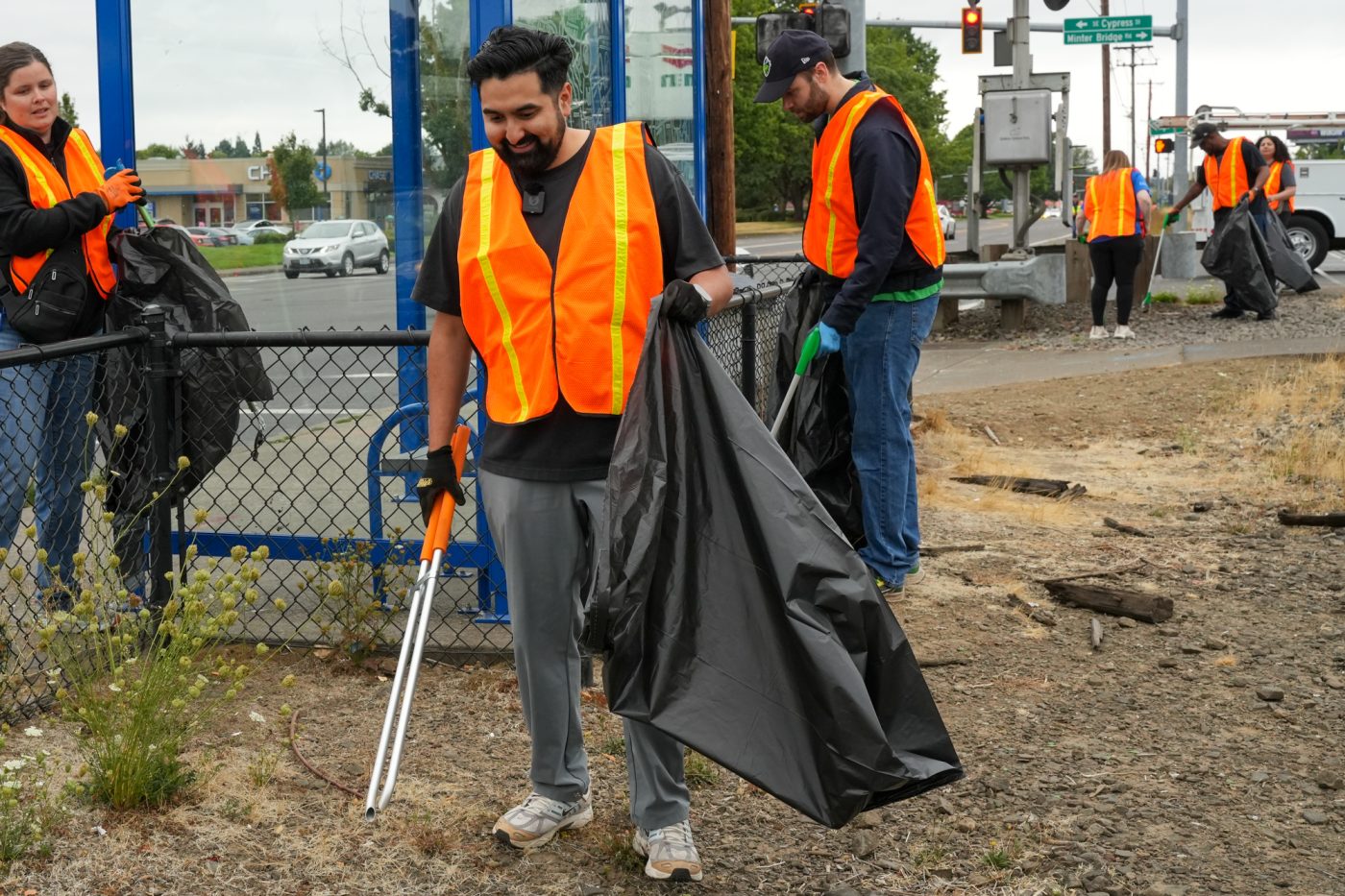
Metro Councilor Juan Carlos González could be the first elected official in our region to cut the ribbon on a major transportation project that will improve a bus line he rode on as a very small child. And if it all goes according to plan, he might even be Metro President when it happens.
González announced his campaign for president last week. On Saturday morning he was at a Home Depot parking lot in Hillsboro playing host to a crowd of several dozen people at an annual cleanup event he organizes. Wearing an orange safety vest and standing next to Hillsboro Mayor Beach Pace, González addressed the crowd above the whir of highway traffic to tell a story he’d never shared in public before. The story helped explain why the Tualatin Valley Highway transit project has become such a passion project for him since he became the first Mexican-American elected to Metro Council in 2018.
“I grew up on T-V Highway. I was born in Forest Grove,” he began. “When I was growing up, I remember one day — I was like, three or four years old — we went to a little toy store on the bus with my Aunt Tonya and I grabbed a little toy and I put it in my pocket. Then when we got home, and I was playing with it, my tia [aunt in Spanish], was like, ‘Where did you get it?’… She was like, ‘No sir!’ and she grabbed my hand. And I remember, like the shame of little kid, right? Getting on that bus again with my little toy and she made me go back into the store and be like, ‘I’m sorry I took this.’
That’s one of my first memories of being on a bus, and that was on line 57.”
González might get to repeat that story when the TV Highway transit project breaks ground. While that’s years away, he and a broad coalition of supporterx have already made solid progress. Five different jurisdictions — Metro, TriMet, Washington County, and the cities of Beaverton, Hillsboro, Cornelius, and Forest Grove — agreed on a locally preferred alternative (LPA) for the project back in May (a political “miracle,” according to González). That’s a key step that unlocks the potential of the big federal grants the estimated $300 million project might need. $30 million has been raised so far and the design process is moving forward.
The project will focus mostly on creating a bus rapid transit system on 17 miles of T-V Hwy (also known as State Highway 8) between Beaverton and Forest Grove. Despite the highway having a horrific record of traffic deaths and injuries, it still ranks as the fifth busiest bus route in the region. 45% of its riders are from Hillsboro, and that’s partly why Hillsboro Mayor Beach Pace spent part of her Saturday picking up trash.
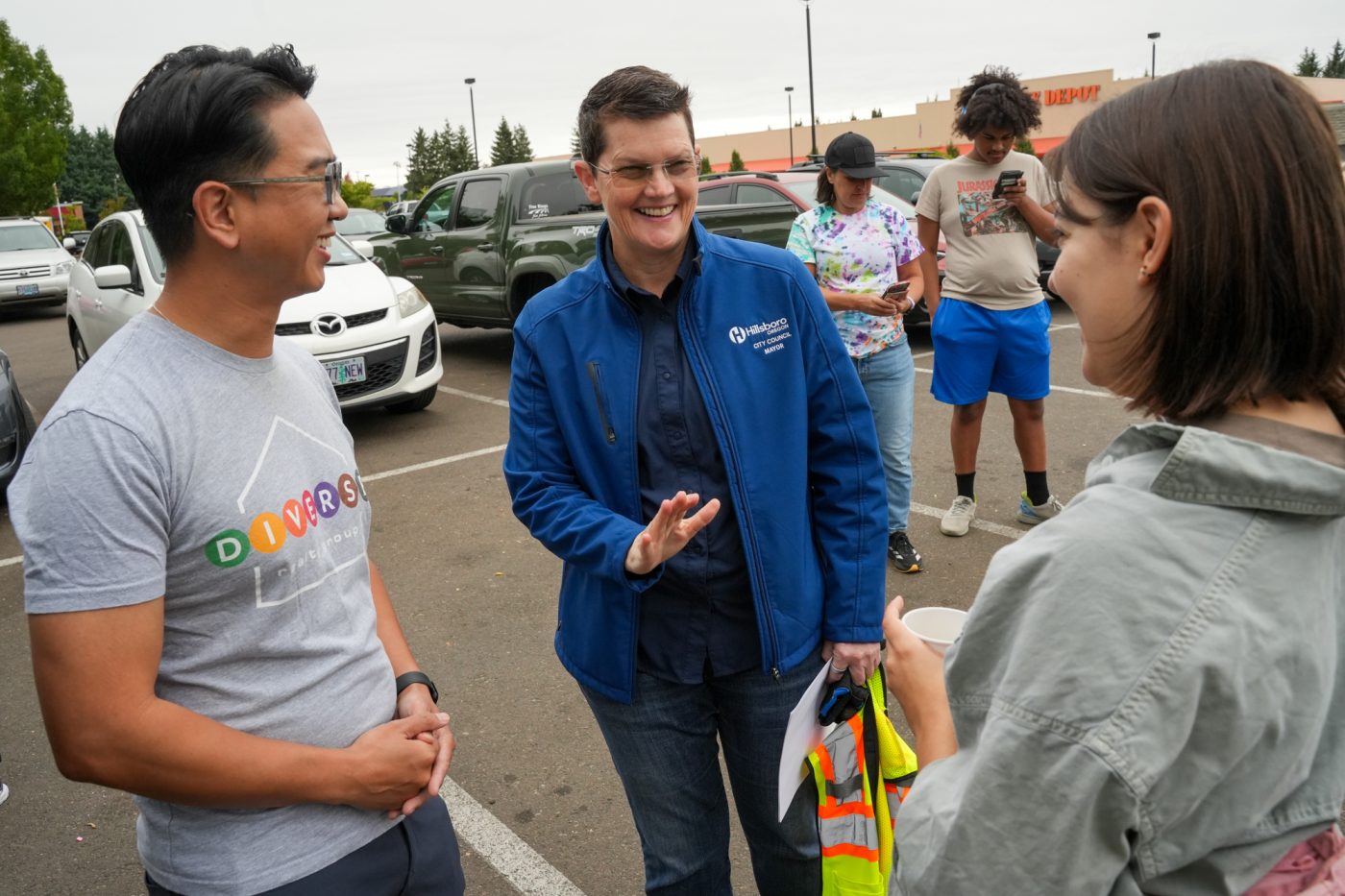
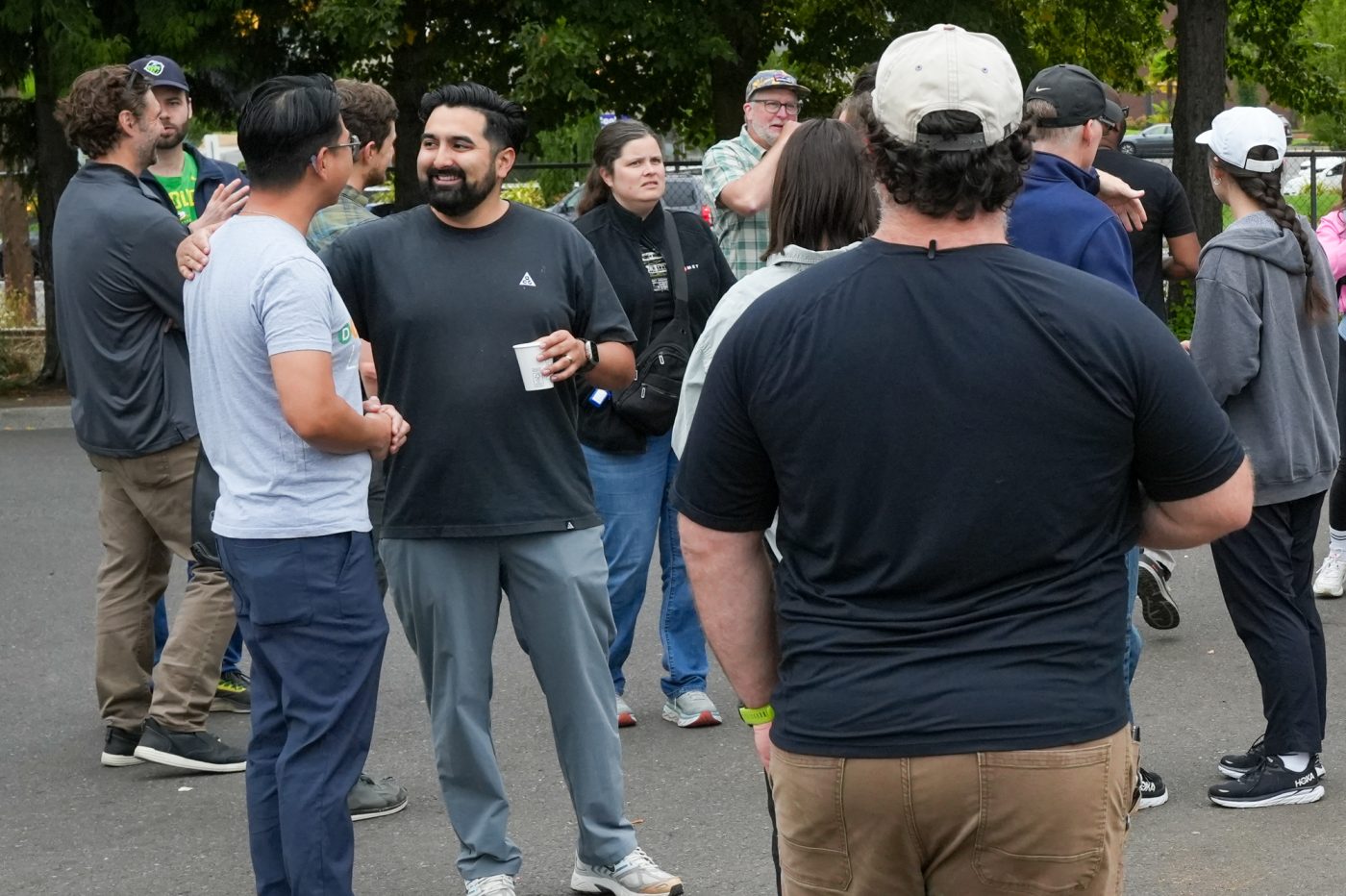

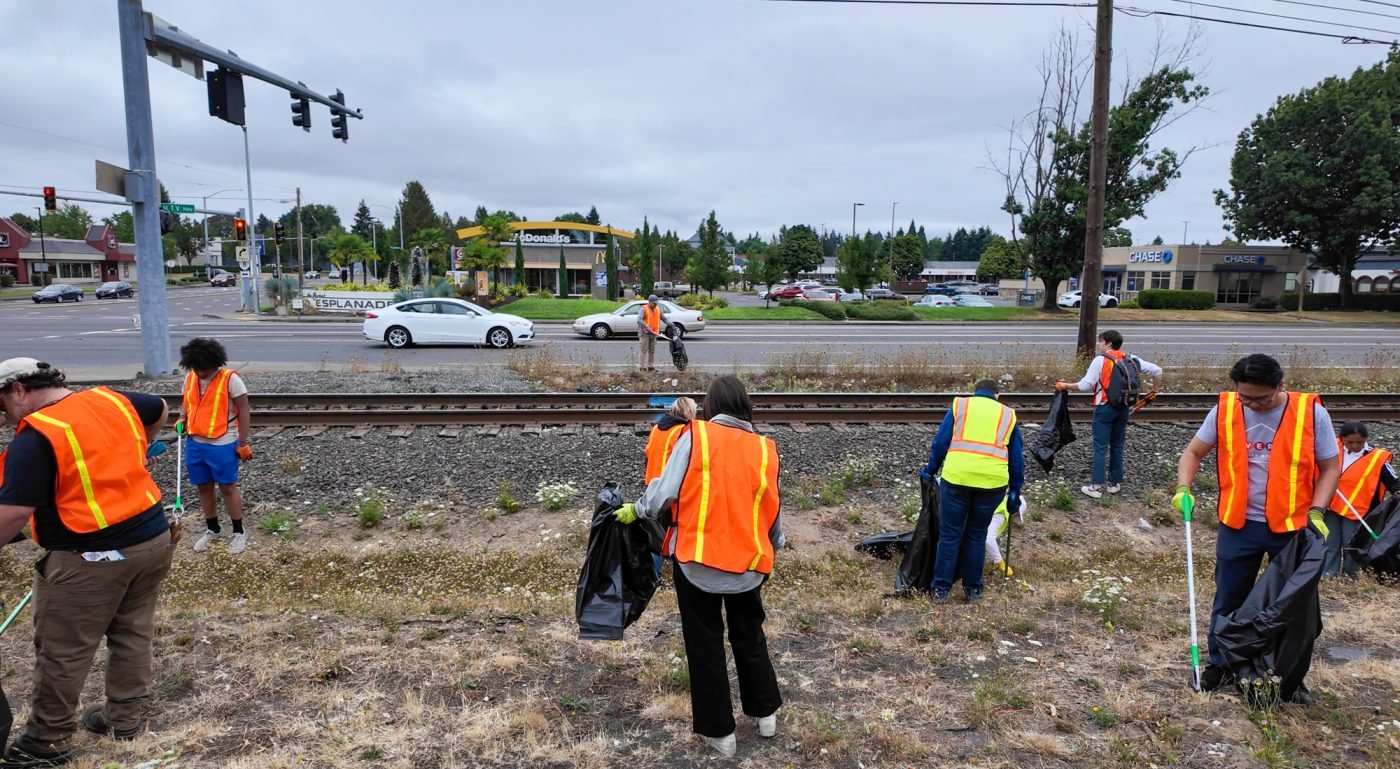
“We’re working to make the bus service better — with better stops and shelters and lighting and seating — to make it more easy to use,” Mayor Pace shared with my in a short interview. “And frankly,” she added, “with more dignity, so you’re not standing next to a pole in the rain.”
The service planned for Line 57 will be similar to TriMet’s FX service between downtown and Gresham along SE Division. 12 minute service intervals are in the plans, along with longer buses, and many road safety upgrades so that more people can safely hop on and off. The changes should make bus trips along the corridor 15-20% faster.
Mayor Pace sees better bus service as an anti-poverty tool. “Many Line 57 riders have lower incomes and they don’t have the option to drive,” she said. “This project will uplift the mobility of these riders, and it will provide a more dignified experience for all of them.”
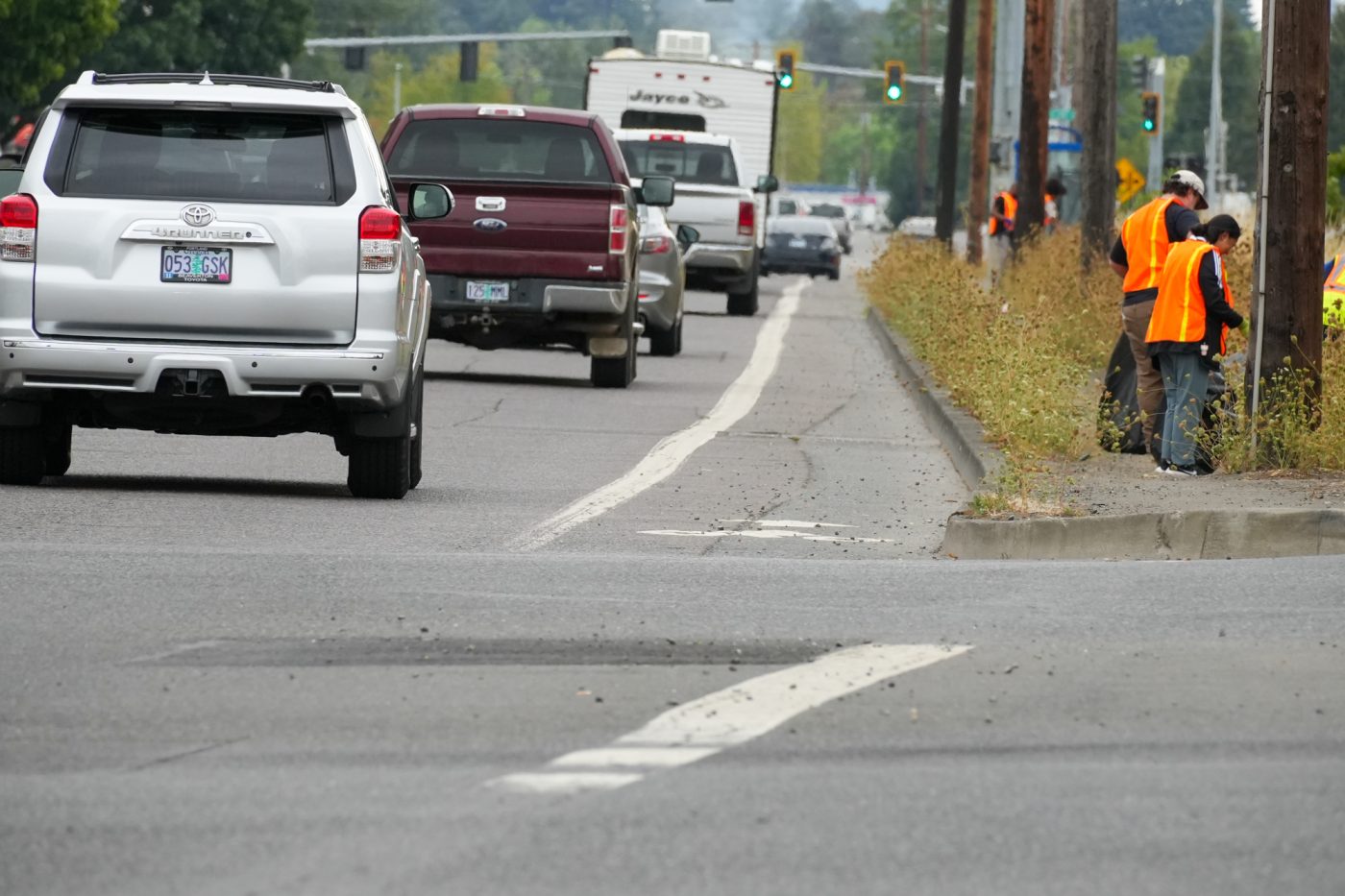
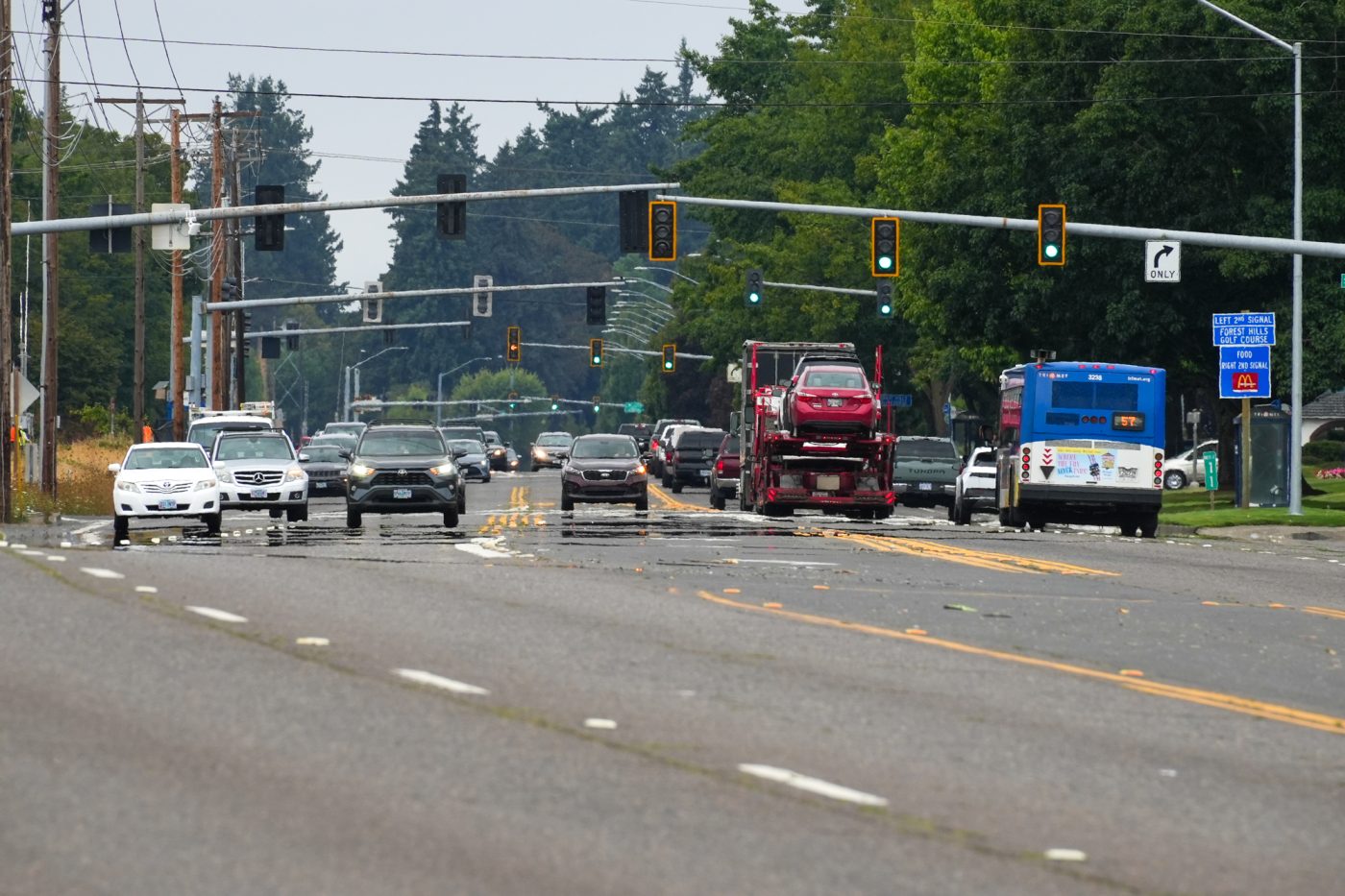
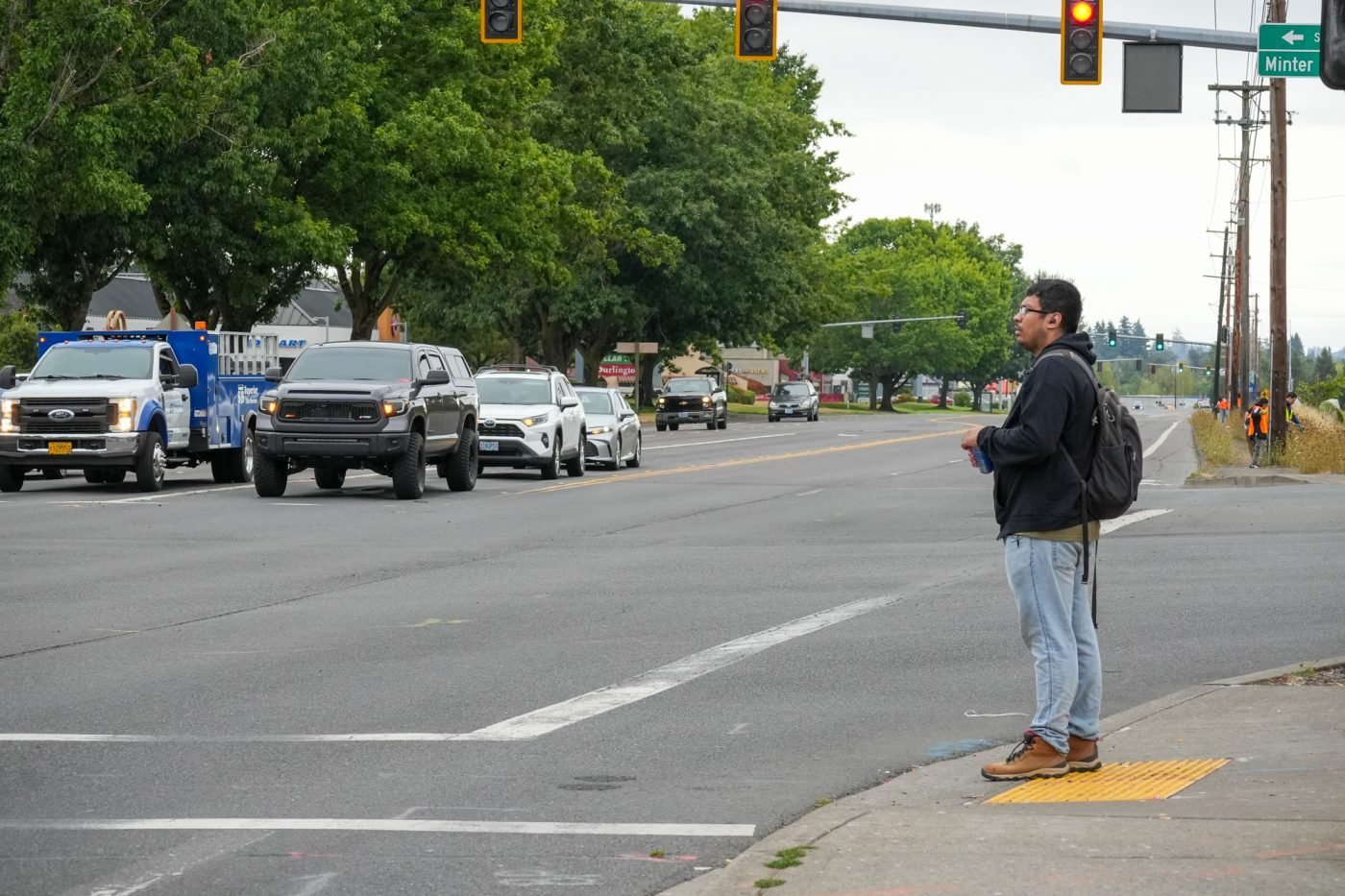
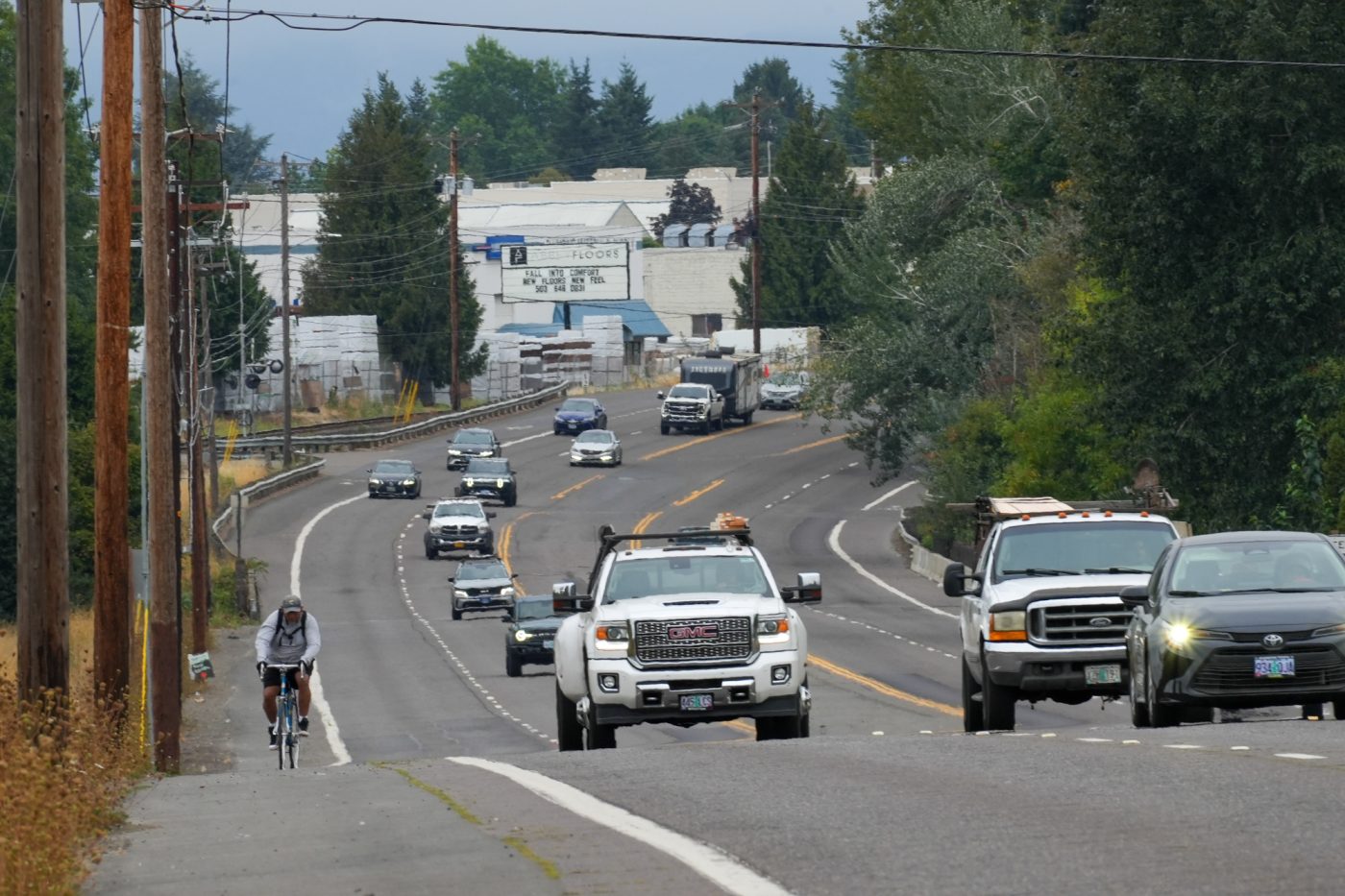
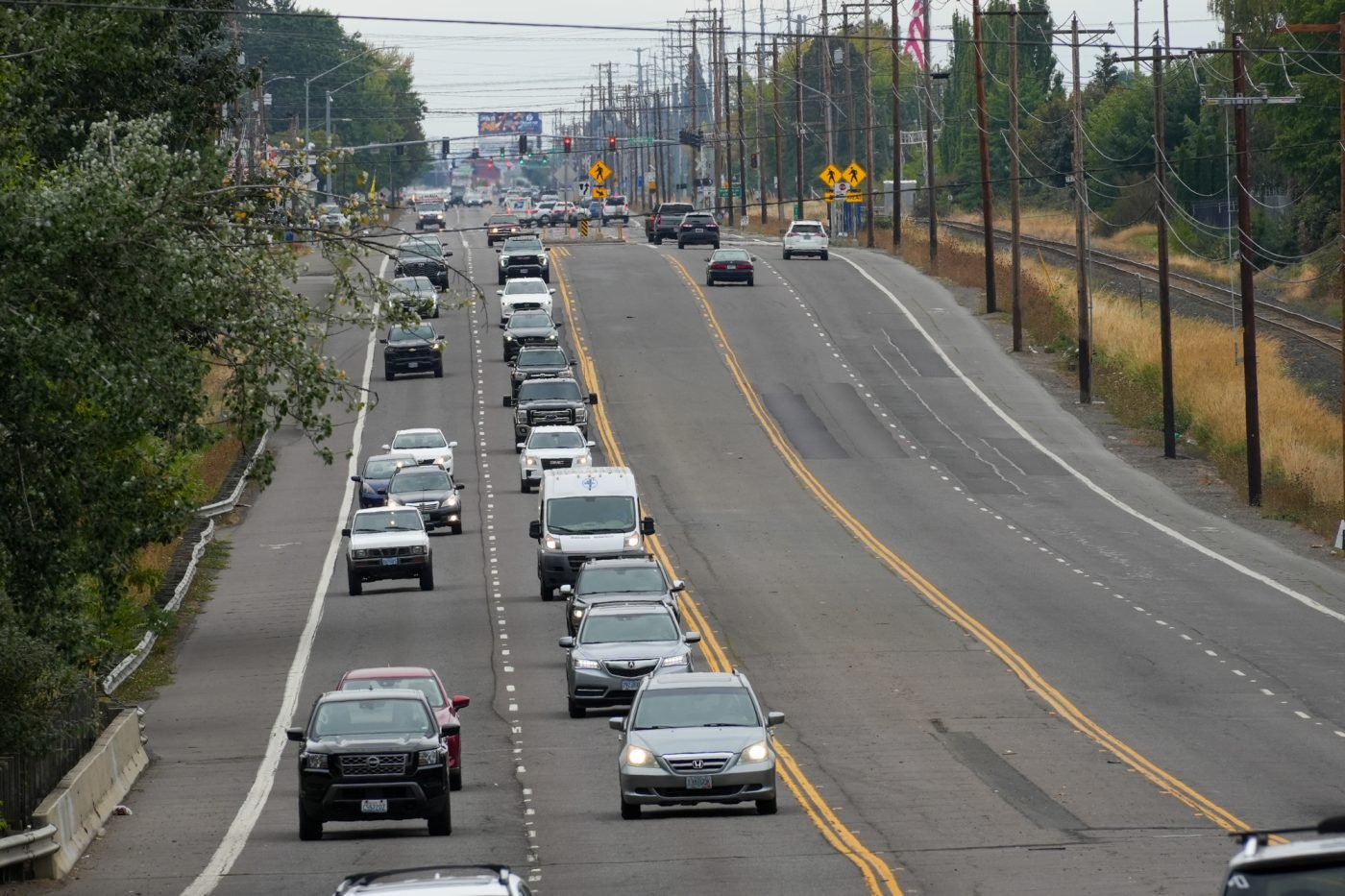
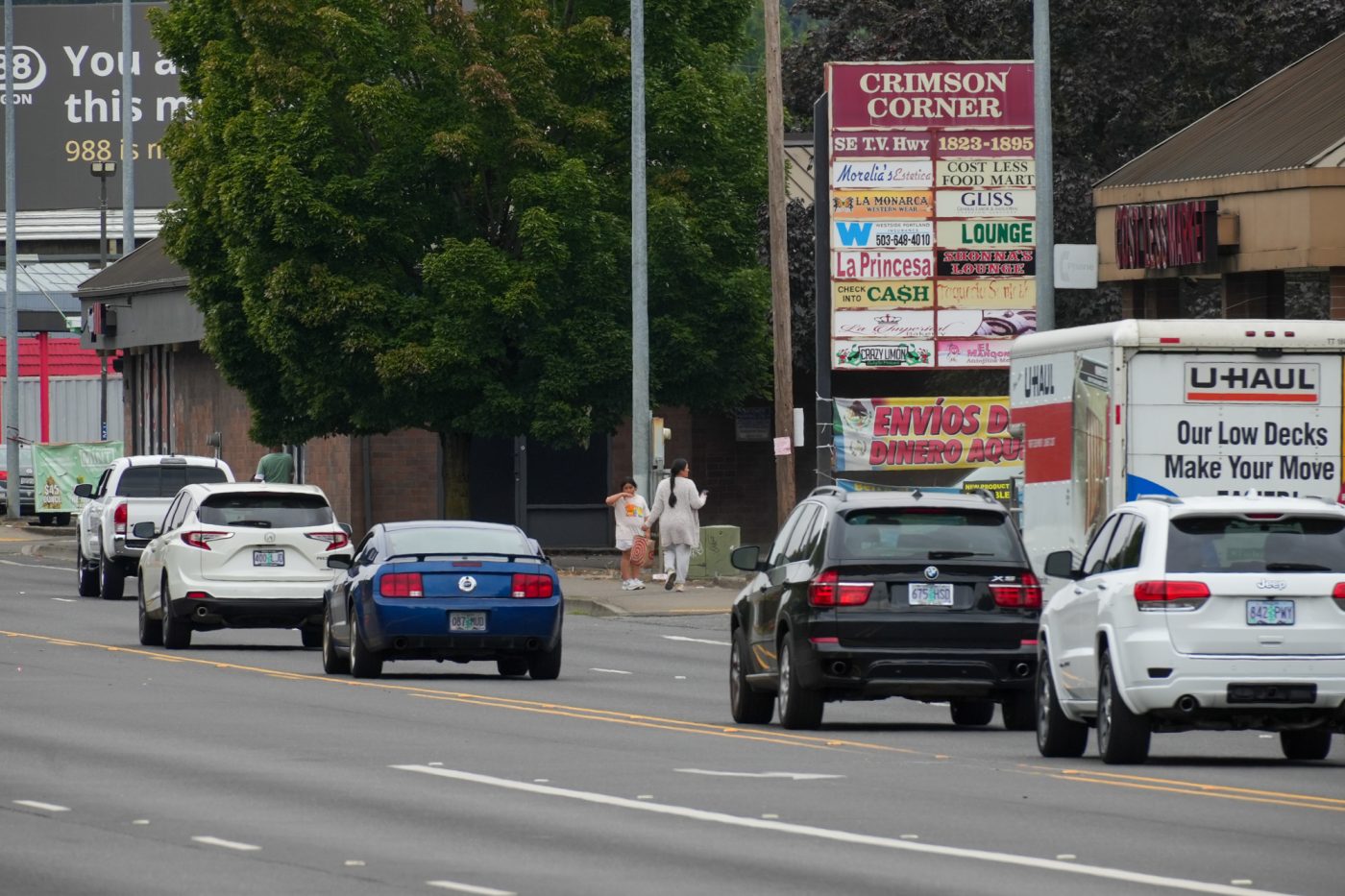

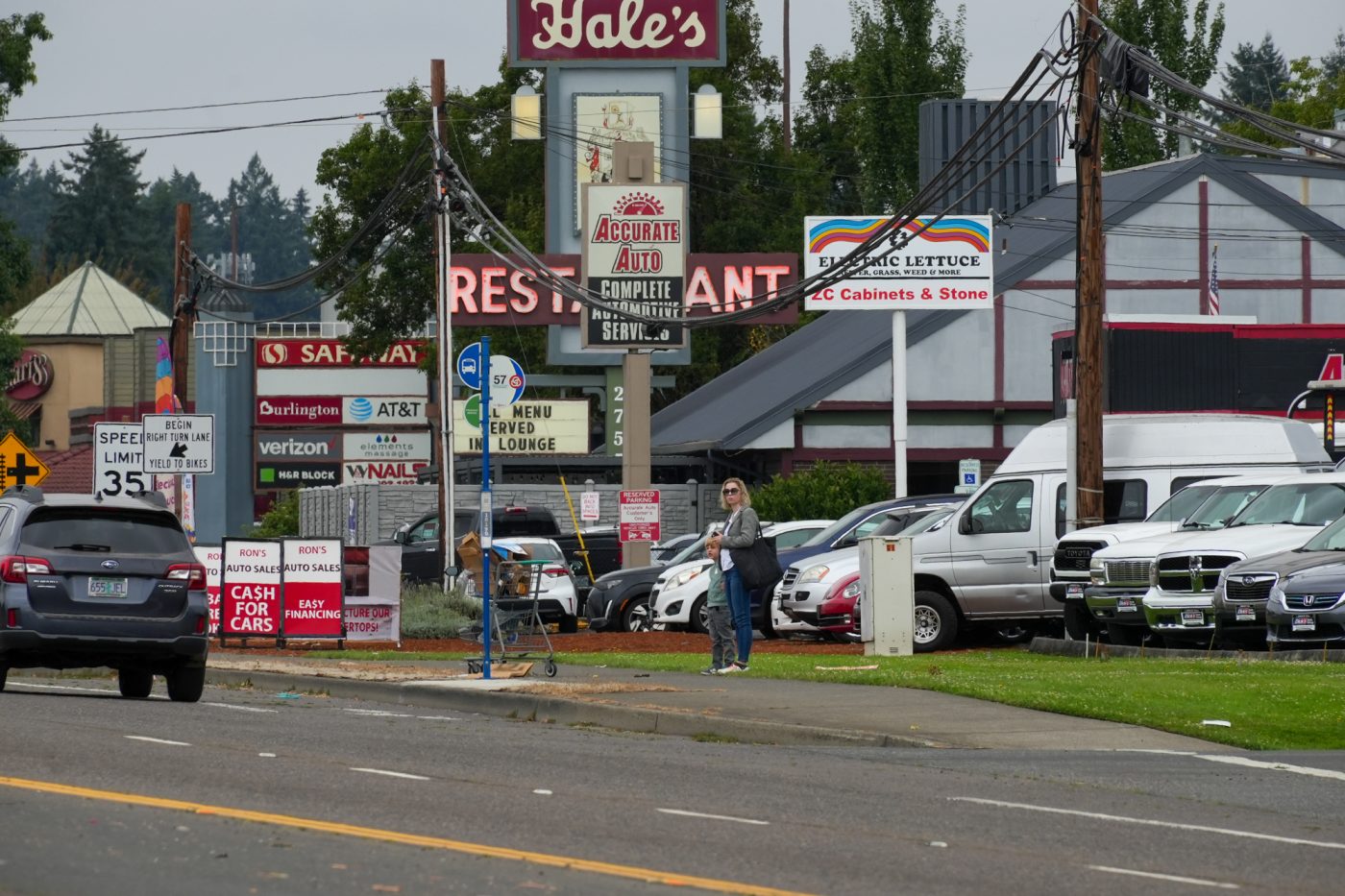
Four intersections along the 17-mile project scope will be completely rebuilt as part of the project — including the one just yards from where volunteers gathered Saturday morning at the corner of TV Hwy and SE Minter Bridge Road. About 300 people get on an off at that stop every day, and when their feet hit the skinny chunk of concrete around the stop, they’re on an island surrounded by freight rail tracks and 11 lanes of fast-moving traffic
30% of T-V Hwy doesn’t have sidewalks, and half of the people who were killed while using it were within a few feet of a transit stop. Councilor González repeated those stats at every opportunity on Saturday. “There’s so much need, and it’s the backbone of my district,” he added. As volunteer crews fanned out along the highway, González worked among them, stabbing bits of trash with a picker and sticking them into a large plastic trash bag. “This corridor has lacked investment for a really long time,” he told me. “We need funding.”
Just last month, Gonzalez and the Metro Council agreed to allocate $28 million in bond funding in hopes of unlocking larger, federal transit grants. But with federal funding uncertain in the Trump era, more local sources are more important than ever. An early version of the statewide transportation package would have directed investment toward T-V Hwy, but that’s since been cut out of the highly compromised bill currently awaiting passage in the legislature.
González lamented that missed opportunity. “I’ve been talking with legislators about the leadership we need from the state and Salem. Frankly, we’re not where we need to be,” he said. “And the sad thing is that there are T-V highways everywhere in the region where people can’t walk, let alone bike safely. That’s a huge problem. That’s not the kind of region I think we should be.”
CORRECTION, 9/10 at 7:48 am: This story initially stated that “one in four” intersections would be rebuilt as part of the T-V Hwy transit project. That is incorrect. Four intersections (total) will be rebuilt. I regret the error and any confusion it caused.



